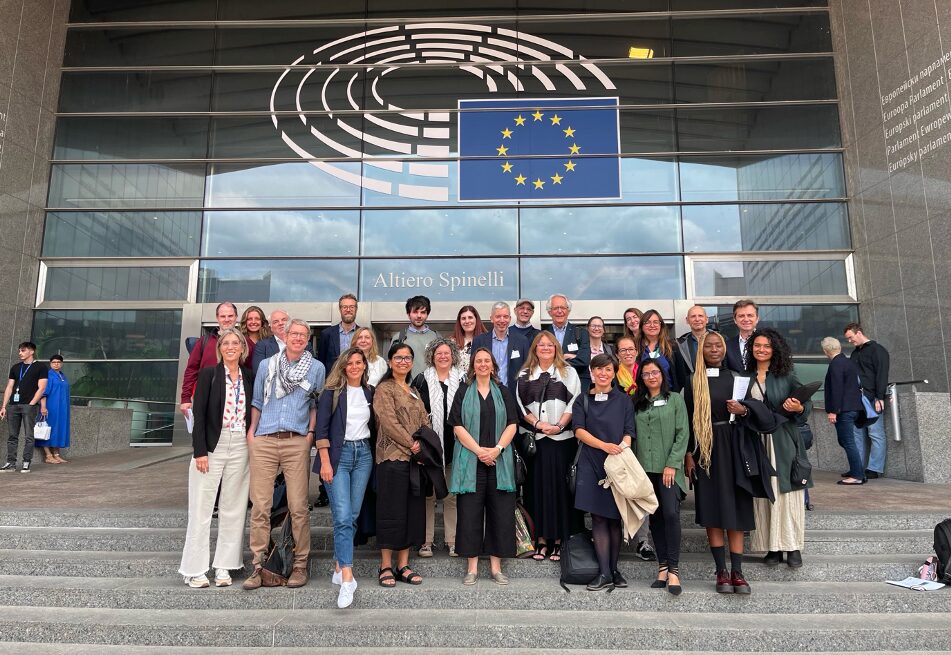On 3 June 2025, the European Climate-Health Cluster organised an event at the European Parliament in Brussels, titled Protecting Health in a Changing Climate.
Bringing together leading researchers and decision-makers, the event aimed to share and disseminate the recommendations outlined in the Cluster’s policy brief with Members of the European parliament, experts from the European Commission experts, and representatives from civil society organisations.
The roundtable discussions addressed one of the most urgent challenges of our time: the intersection of climate change and public health, and highlighted the growing evidence on climate-related health risks and called for integrated action across Europe.
Urgency and evidence: climate change as a health crisis
Moderated by Debra Jackson from the HIGH Horizons project, the event was hosted by Lithuanian MEP Vytenis Povilas Andriukaitis, former WHO Special Envoy and European Commissioner for Health and Food Safety. He opened the session by highlighting the direct health impacts of extreme heat, floods, and droughts, stressing that these climate-related events are already affecting people around the world, as well as across Europe. Andriukaitis emphasised, “The European Health Union is only just the beginning—we need to develop a genuine health union, one that includes climate change at its core.” He underscored that only by fully integrating climate considerations into the European Health Union can we hope to effectively tackle what is arguably the greatest challenge of our time.
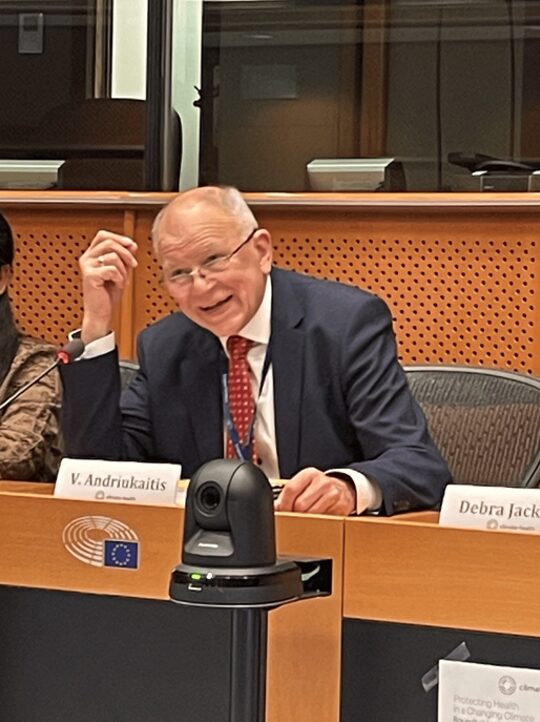
Josep M. Antó, from the CATALYSE project, presented the Cluster’s first policy brief. “Most risk factors have reached alarming levels, and the urgency for action is clear,” he stated, referencing the Lancet Countdown’s indicatorsthat track rising threats such as heatwaves, floods, fires, and food insecurity. “We have plenty of evidence that justifies the need for action: we need integrated adaptation and mitigation policies to reduce the impacts of climate change on health.”
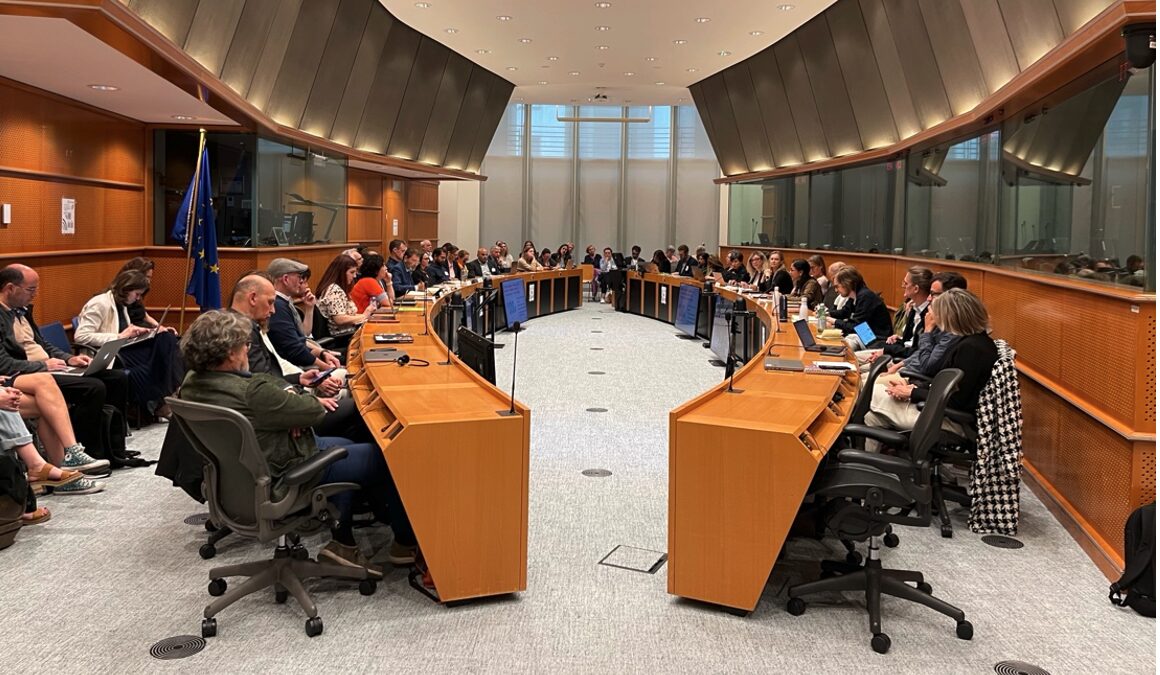
Panel discussion: progress, barriers, and the path forward
The first panel, moderated by Raman Preet, from the IDAlert project, discussed the complexities of health consequences arising from climate change. Silvana Di Sabatino from the TRIGGER project, highlighted that cardiovascular diseases remain a major burden, especially as climate extremes shift northward. She warned, “When we talk about heatwaves, we shouldn’t forget we need to monitor cold waves as well—there’s a close connection to cardiovascular fatalities during prolonged cold”.
Carmen Laplaza Santos from DG RTD called for a new approach to research: “We need to move forward with more translational, implementation-focused research so that evidence can be effectively taken up by policymakers. Help us maximise the impact of your research—interaction between those who produce tools and those who need them is crucial”.
Aleksandra Kazmierczak, representing the EU Observatory on Climate & Health, discussed the challenges of measuring adaptation progress. She stressed the importance of considering cascading effects, such as the interplay between heat and cold, and advocated for “all experts, doctors, scientists, policymakers, working together” to harmonise data and recommendations across countries.
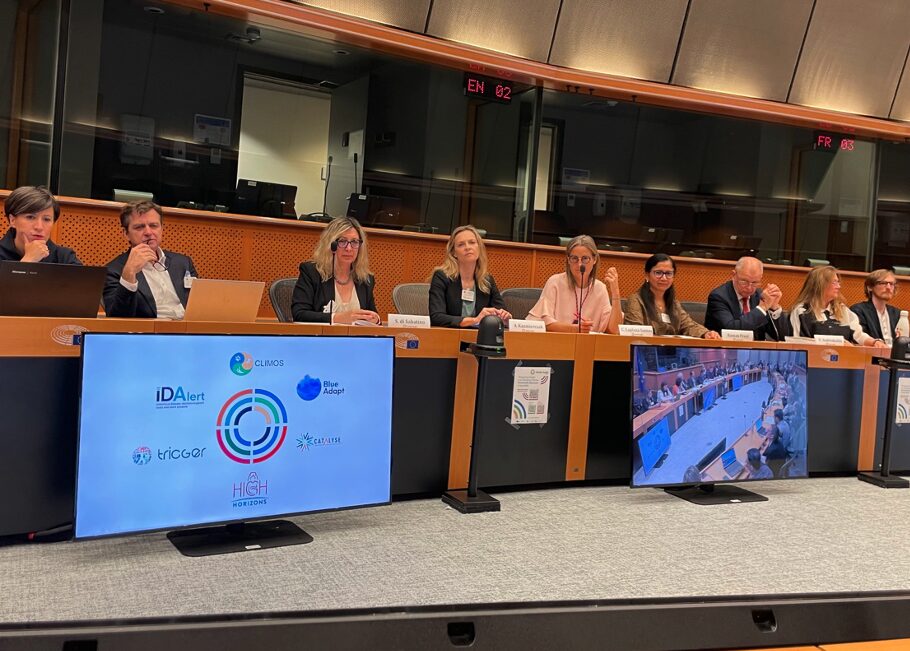
Social fairness and vulnerability: putting people at the centre
The second panel, moderated by Vania Putatti from the BlueAdapt project, shifted focus to the social dimensions of climate-health policy. Carla Maia, from the CLIMOS project, highlighted that climate-driven vector-borne diseases such as leishmaniasis are increasingly threatening vulnerable populations across Europe, including rural, socioeconomically disadvantaged, immunosuppressed, and marginalised groups. Further, stressing that as sand flies spread due to climate change, these communities will bear the greatest health burdens, while also pointing to real opportunities for targeted action to protect human health.
Italian MEP Ignazio Roberto Marino, reflected, “When we talk about climate change, we hear the words emissions and technologies, but we often forget the human dimension. A third of the population will soon be over 60, many with chronic diseases. We need to ensure that EU climate legislation has a clear view on social impact assessment and puts the most vulnerable at the centre”.
Peter Löffler from DG CLIMA echoed this, noting, “We are all vulnerable to climate change, but the most vulnerable, low-income families and the elderly, are disproportionately affected. We are currently designing policies that will be informed by diverse perspectives and evidence, with a focus on equity and inclusivity”.
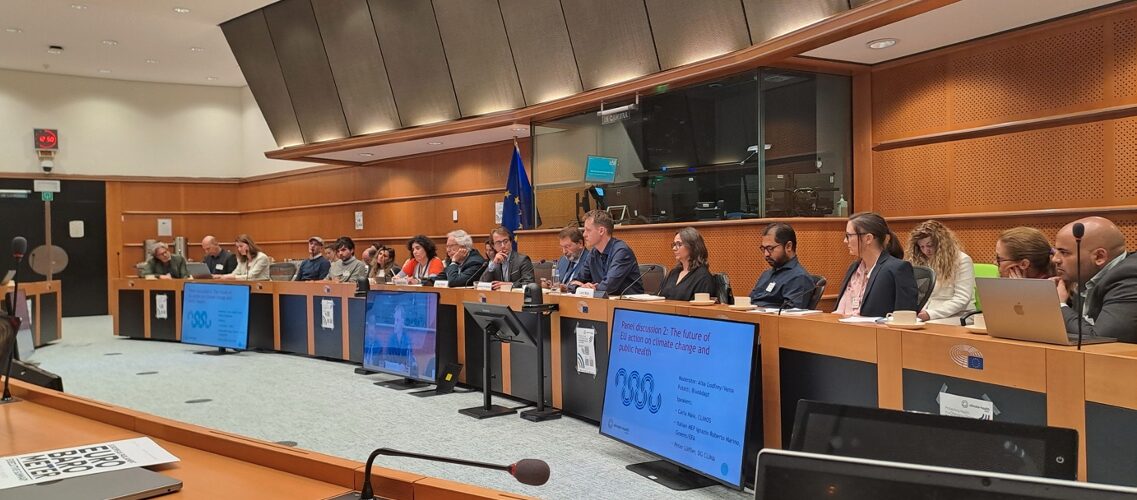
The European Planetary Health Cluster was also invited to participate in the meeting, represented by Vanessa Harris from the SPRINGS project, who currently co-coordinates the Cluster. She presented the Cluster’s role in understanding and addressing the complex links between environmental degradation and human health, and called on policymakers to closely follow the recommendations that will emerge from the Cluster’s ongoing research and intervention work across Europe and low-income countries.
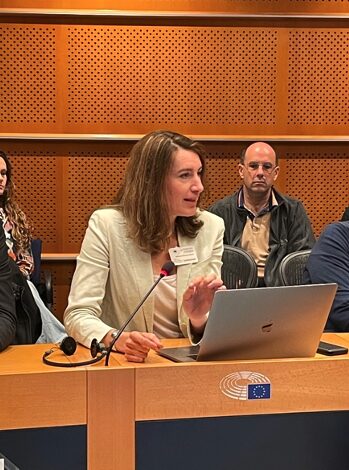
Bridging science and policy: a call for collaboration
Closing the event, Rita Araujo of DG RTD highlighted the power of collaboration: “We brought together research clusters representing over 100 groups from 30 countries. This is a powerful network, instrumental for dialogue between policy and science. There is strong evidence that climate change is a serious challenge with proven impacts on human health, and we need urgent action”.
Key Takeaways
- The health impacts of climate change are immediate and growing, affecting everyone but especially the most vulnerable.
- Integrated climate policies that include human health are informed by robust scientific evidence, and are essential for effective mitigation and adaptation.
- Stronger collaboration between researchers, policymakers, and society is needed to ensure that solutions are both effective and equitable.
- Communication and engagement with the public must be prioritised to ensure a just transition.

